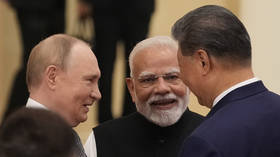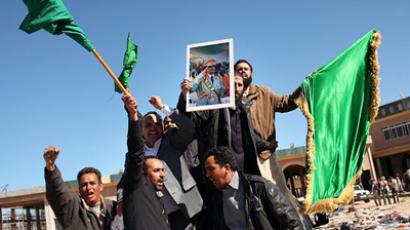Retweeting democracy

The US is training anti-government activists from the Middle East and North Africa on how to spread democracy with the help of modern computer technology.
One of the latest developments is the “panic button”. According to the State Department, the application can be uploaded onto activists’ cell phones. In case they get detained, the software instantly erases the contact book in their phones and sends a warning alert signal to other activists. It looks like the application could soon be in demand – one push of a button and the evidence is gone. American officials claim the best of intentions, saying it is to protect pro-democracy forces in other countries. But many will be wondering if the innovation will be something also welcomed by drug dealers, criminals and terrorists.To help use the technology more effectively, the US has organized training sessions for thousands of activists. One held just weeks ago in the Middle East included anti-government campaigners from Tunisia, Egypt, Syria and Lebanon. And as the newly trained and equipped activists return home, the US, as one State Department official put it, counts on the ripple effect. “Foreign interference doesn’t have to be a military invasion and a bombing campaign or some kind of a special operation in that country. It can also be the training and funding and political support given to individuals who then promote those foreign interests. That’s one of the newest strategies that the US government has successfully been executing in different countries around the world, that it doesn’t consider subordinate to their agenda. And they do it subtly, so it’s harder to detect and denounce it, which is often more effective”, claimed Eva Golinger, a journalist.The US perceives the internet and social networking platforms as major tools for spreading democracy, and pumps millions of dollars into developing systems to help people in the Middle East and China get around internet-blocking firewalls. But at the same time, American companies provide Bahrain, Saudi Arabia and Kuwait with the technology to effectively block websites. The US military has recently launched an online management program which enables it to generate multiple fake identities on social networks. The false personas are designed to contribute to the flow of conversations on Facebook, Twitter and other websites. “People are using social media for cyber warfare. That’s what we are going to see – governments or non-state actors are going to try to find ways to use the internet and social media to gain an advantage in their own battle”, Shadi Hamid from the Brookings Doha Center told RT.The recent turmoil in Libya suggests the orchestration of Twitter with fake users. Only around five per cent of Libyans have access to the internet and the number of twitter users there is so small that analysts could not even calculate it. Yet, in February this year, a surge of Libyan Twitter accounts appeared, reporting in English and virtually all begging for intervention. “We know that since the beginning of the war Libyans have no longer got access to the internet, but somehow people don’t check the essential facts and they take all the information coming from social media at face value, which then serves the broader purpose of fabricating the news”, said Michel Chossudovsky, Director of the Center for Research on Globalization.Trained activists, provided with panic buttons and other technology, scores of false identities on the internet spreading certain ideas – the US says this is all about promoting democracy. But do these declared intentions justify direct interference in other countries’ domestic affairs?














